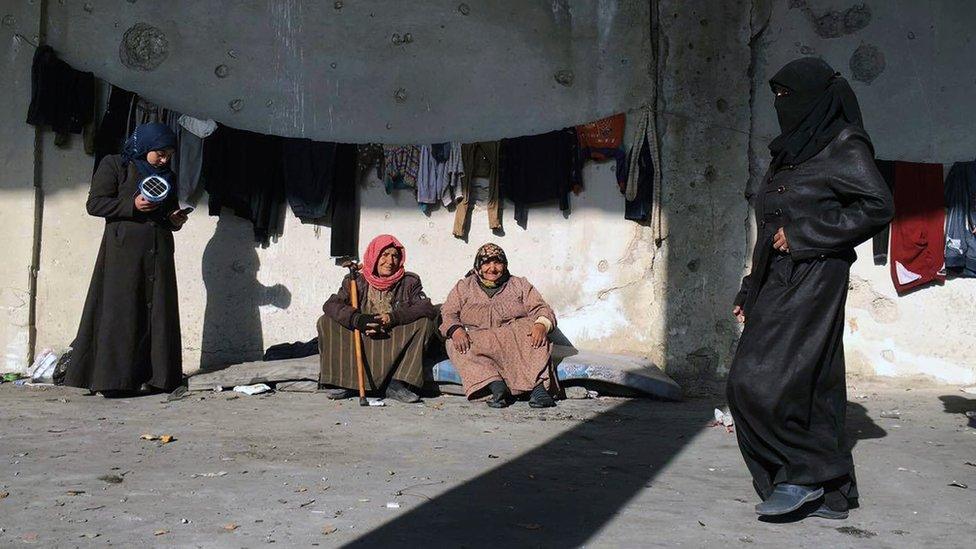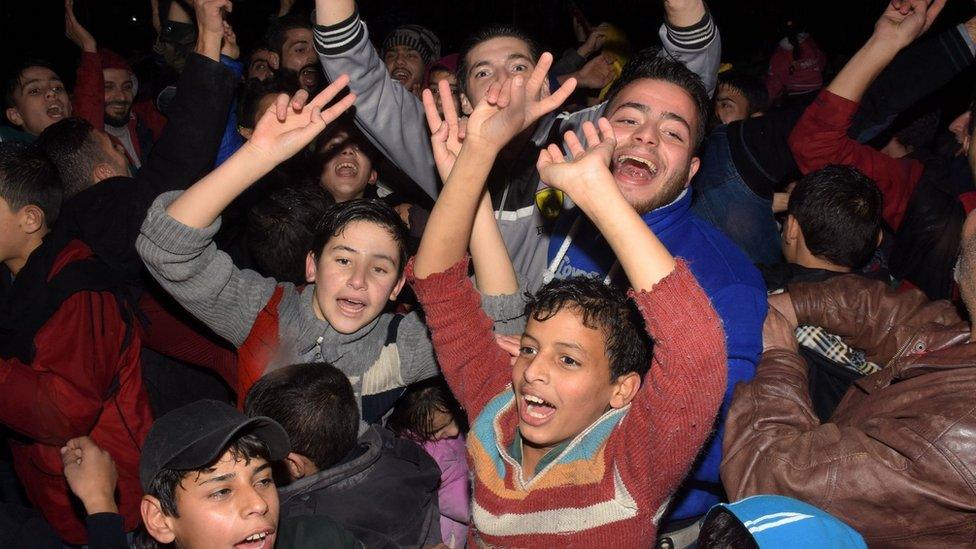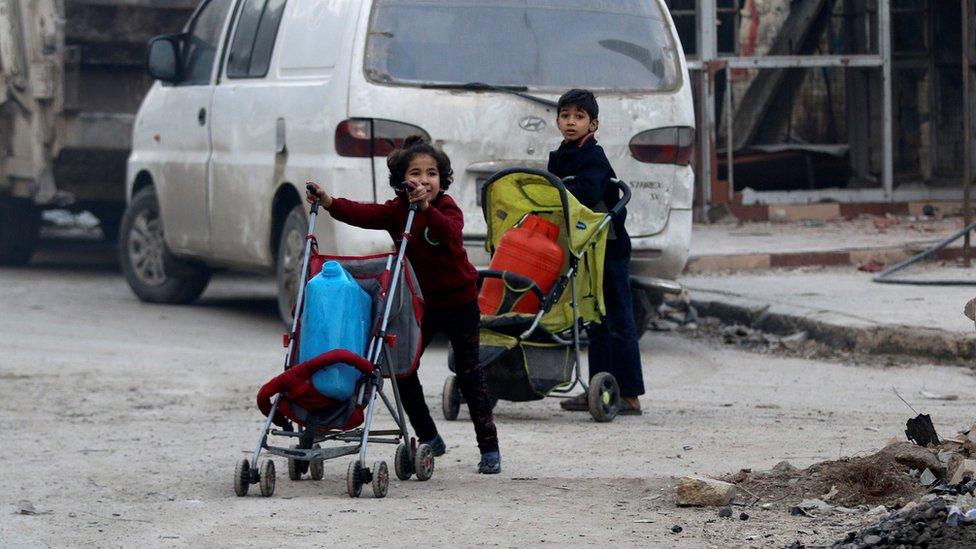Recapture of Aleppo: What next for Syria?
- Published

Displaced families from eastern Aleppo at a shelter in the village of Jibreen
The battle for Aleppo may be over but the struggle for the future of Syria will continue. Indeed, it may become even more chaotic and bloody.
The crushing of the rebel enclave in eastern Aleppo represents a major propaganda victory for the government of President Bashar al-Assad, which now controls virtually all of the major population centres of the country.
Aleppo though - the most populous city before the civil war and the country's financial centre - is the biggest prize.
The capture of Aleppo represents a victory not just for Mr Assad but also for his Iranian and Russian backers.
Aleppo itself may not matter much on Moscow's strategic chess-board. But the defeat of the rebel opposition there underscores the extraordinary turn-around in President Assad's fortunes.
Before Russia intervened President Assad was on the ropes; his military power crumbling.
External actors have propped up his government in large part to secure their own strategic aspirations. And these aspirations will play an important part in deciding what comes next.
If the government can consolidate its hold on Aleppo, then it now controls a significant part of what might be termed "essential Syria" - the west of the country, its major cities and the Mediterranean coastline.
One option would be for the Assad government to dig in and consolidate this "rump" Syria.

There were celebrations in government-held areas as the rebels retreated into a tiny pocket of the city
Mr Assad himself, of course, has always insisted that his troops will remain on the offensive until all the territory held by the rebels is recaptured.
This though may be nothing more than bravado.
His army is overstretched and a shadow of the force with which he began this conflict. Indeed, as the ejection of its forces from Palmyra by the return of so-called Islamic State (IS) shows, the Assad government may be hard put to hang on to many of its gains.
It is fundamentally weak and its success in Aleppo should not obscure this essential fact.
Much of the regular Syrian army has disintegrated into a variety of loyalist militias, often with local or regional concerns. And much of the fighting has been spearheaded by Iranian-backed forces - Hezbollah from Lebanon and various other Shia Muslim militias.
Many rebel fighters may have escaped the city to seek refuge in Idlib province, to the south-west of Aleppo. This could well be the next major battleground, if the government and its Russian backers want to maintain the momentum.
Russia's view will be of critical importance. It cannot necessarily tell Mr Assad what to do, but it can certainly influence the means at his disposal - weaponry and air power.
What will Moscow want to do next? Is it in its interest to see perpetual war in the region? Or might it seek to draw a line with the fall of Aleppo and seek some kind of arrangement or understanding with the incoming Trump administration in Washington?
Any such deal of course would mean the US accepting Iran's growing significance in Syria.
The Russian-leaning sentiments of some in the incoming US administration would be thrown into stark opposition to the strident hostility to Iran shown by many of Mr Trump's picks for the key security and defence jobs.
But Washington's options are becoming limited. The fall of Aleppo places another nail in the coffin of the Obama administration's strategy of aiding the so-called moderate opposition.
Of course Washington wants the moderate rebels to fight IS, but now they are likely to be under even greater pressure from government forces.

These children were among the civilians left in rebel-held Aleppo
The anti-Assad rebels now face a very difficult time. They have lost more than just a battle.
They may not have lost the war - or at least not yet - but they are even further away from winning it.
Their relationship with the incoming US administration is uncertain. Nobody knows what Mr Trump may do. Many analysts fear that moderate rebel groups will be pushed inexorably into the embrace of the more extreme Islamist factions.
But beyond the geo-politics and the military campaigns, there is the devastating human tragedy of what has befallen the city.
Once the fighting is over, the true scale of the calamity will be revealed. Aleppo - like many other places in Syria - needs massive and rapid assistance.
Drone footage reveals the extent of the devastation in eastern Aleppo
In the longer term, there needs to be an epic battle to rebuild and reconstruct.
But with the fighting continuing elsewhere and with so many people killed, maimed and displaced, a heavily-sanctioned Syria has neither the financial nor the human capital for such a task.
In the wake of Aleppo's fall, all of the actors - both internal and external - are going to have to reassess their strategies.
But this brutal and multi-faceted war is going to lose none of its complexity.